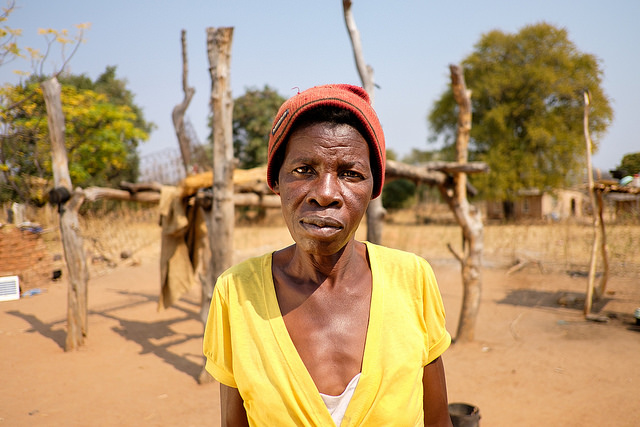
The Catholic Church in Musina provides food parcels to 260-270 people every day including approximately 100 newcomers.
Credits: Caritas
They escaped with their lives from a country in collapse. They fled often with nothing. They came to the region’s richest and most powerful nation looking for protection. However, they have been welcomed with abuse, discrimination and a blindness to their plight.
Approximately 3,000 Zimbabwean men, women, children and babies are trapped in dire conditions behind a wire perimeter camp in Musina, a border town in South Africa. The refugee camp on Musina’s Showgrounds is the size of a football field and contains neither adequate shelter, sanitation or protection for the vulnerable Zimbabweans.
They have fled a country where famine threatens half the population, a cholera epidemic goes unchecked, and violence and repression are widespread. The Government of South Africa regards them as economic migrants however, meaning they can be denied asylum.
“The situation for Zimbabwean refugees in Musina is horrendous,” said Sr Aine Hughes of Caritas South Africa (known nationally as the Siyabhabha Trust). “People are herded together with no thought for their dignity as human beings. There is no shelter of any kind provided to the people. They sit in the blistering sun during the day and huddle together under the stars at night for safety and warmth.”
For the first week of February alone the rainfall for that area was 80mm, so rain or sunshine the Zimbabweans are exposed to the elements, and they try to collect bits of plastic to cover their meager belongings and their children.
14 chemical toilets are provided at one end of this field only. There are 2 makeshift washing facilities, which are dismally inadequate, with the result that men and women are forced to wash in the open field.
Bribes are the only means of survival and for those who are too poor to be able to comply they are subjected to every possible form of discrimination.
“Women with whom I spoke, shared how they huddle together at night in the hope of being able to protect one another, but despite that many are raped repeatedly, abused by both their own people and officials at the camp who are supposed to protect them,” said Sr Hughes.
Aid groups have offered tents to accommodate the refugees, but the Municipality of Musina has rejected the offers.
The Catholic Church in Musina provides food parcels to 260-270 people every day including approximately 100 newcomers. This scheme has been in operation since May 2008 at a cost of US $6,800 per week.
Zimbabweans are also facing discrimination in the local community. Just last week, 48 children were chased away from school’s that had accepted them because they were not wearing the correct uniform. Other children were threatened with expulsion by their teachers because their asylum permit is only valid for six months.
Musina Advice Office has confirmed that many Zimbabweans complained of being cheated out of their wages and being threatened with jail and deportation, despite having worked, but because they had not been able to get an asylum seeking document they were too afraid and left the jobs.
The Department of Home Affairs registers approximately 20 Zimbabweans daily for asylum. They contend that Zimbabweans are purely economic migrants and therefore do not qualify for asylum, thus many are rejected and are detained and deported. On many days no applications are processed because the mobile unit does not have sufficient paper or the correct forms.
“The situation of the Zimbabwean refugees in Musina is in contravention of all the conventions and principles for humanitarian assistance and should be addressed with the utmost urgency,” said Sr Hughes.
